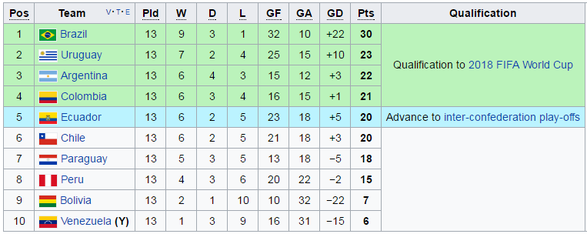At the start of the year I had an entry about the ever-expanding World Cup Finals and attempted to put some logic behind FIFA's plans to increase the number of teams at the Finals in 2026.
Prior to this weekend's world cup qualifying fixtures, I read a Sky Sports article focusing on the potential of a World Cup without Argentina. Since the weekend, the chances of this have reduced thanks to a Lionel Messi penalty in a 1-0 win over Chile. The current qualifications standings are below.
The South America countries have things much more straight-forward, and not just over the European. The table below shows the percentage of countries that have qualified from each confederation since the World Cup

The decision to increase the number of teams for further tournaments has been met with much criticism, and raised issues of the quality of teams that could now reach the finals. If 16 additional countries are to be given places, surely Africa, Asia, Oceania and North and Central American countries should be first in the queue. The quality may not improve but the distribution of places will be much closer to a model consistent with a "World Cup".

 RSS Feed
RSS Feed